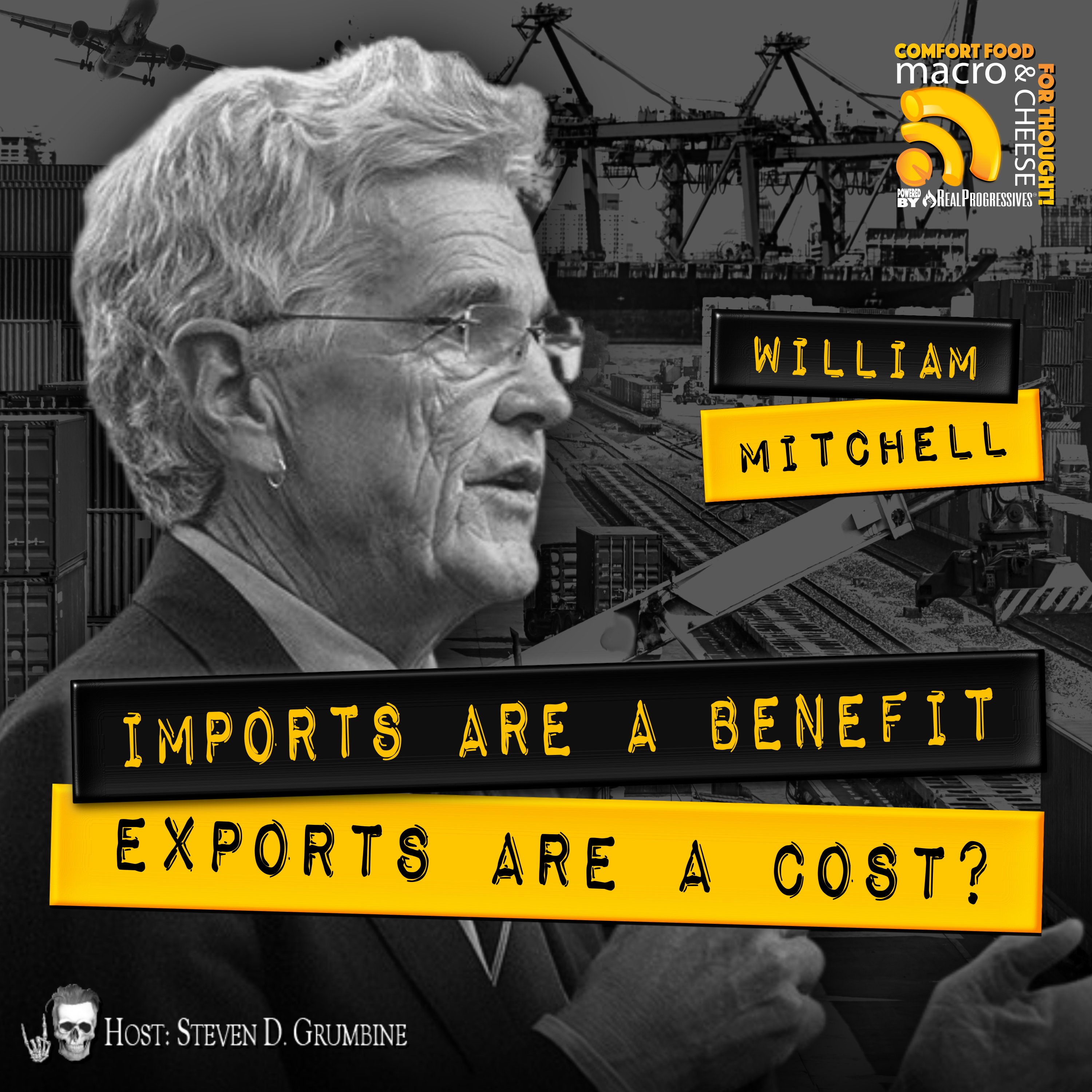Episode Details
Back to Episodes
Ep 343 - Imports Are A Benefit, Exports Are A Cost? with William Mitchell
Description
In our 14th episode with Australian economist Bill Mitchell, the conversation focuses on the MMT perspective on international trade. Bill explains what is meant by the statement “imports are a benefit, and exports are a cost,” where it fits into the history of economic thought, and some of its implications.
A significant portion of the conversation is dedicated to explaining the crucial shift from the Bretton Woods fixed exchange rate system to the modern system of floating exchange rates after 1971. Bill clarifies that in a floating regime, a currency-issuing government is not financially constrained in its domestic policy by “trade imbalances,” as it was under Bretton Woods.
The episode also touches on bond vigilantes, the IMF, and the shifting status of the US dollar as the world’s reserve currency.
William Mitchell is Professor of Economics and Director of the Centre of Full Employment and Equity (CofFEE) at the University of Newcastle, NSW Australia. He is also the Docent Professor of Global Political Economy at the University of Helsinki, Finland, and Guest International Professor at Kyoto University, Japan.
Follow Bill’s work, including his upcoming books, at https://billmitchell.org/blog/